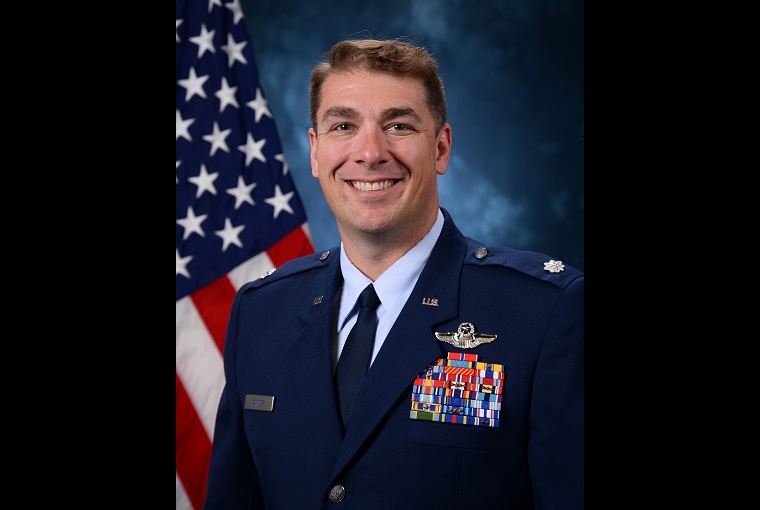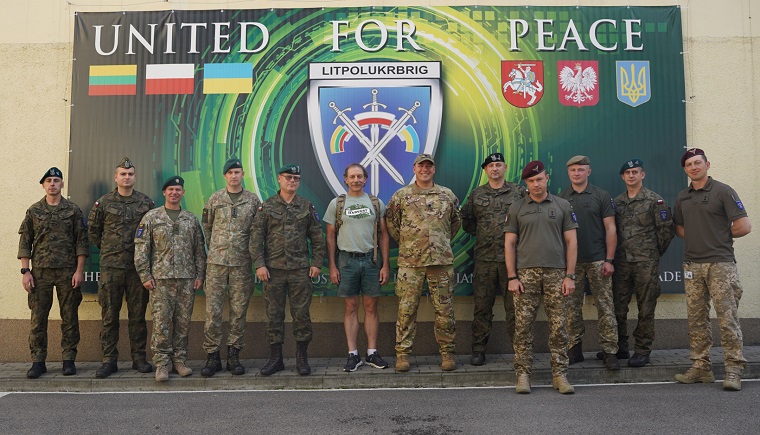U.S. Naval War College Professor Awarded Newly Launched Research Grant

NEWPORT, R.I. – U.S. Naval War College (NWC) faculty member, U.S. Air Force Lt. Col. Jahara Matisek, Ph.D., was recently awarded the first-ever Defense Security Corporation University (DSCU) grant for research spanning a wide array of security cooperation topics.
The DSCU Research Grant Program was launched in March 2024 to produce research, analysis, and lessons learned that expand the intellectual foundations of security cooperation.
Matisek was one of eight applicants selected based on demonstrated ability to advance the knowledge and practice of security cooperation via the education, training and development of the U.S. Security Cooperation workforce and that of partner nations. Grant proposals were also assessed on applicants’ ability to produce research, analysis and lessons learned to broaden the intellectual foundations of security cooperation.
“U.S. and allied security cooperation and assistance is a critical area of study given that the U.S. has invested over $400 billon in training, equipping, and arming foreign militaries since 2001,” Matisek said. “This research will help us identify areas of success and areas for improvement, enabling the U.S. to optimize its strategies and enhance the effectiveness of future efforts.”
Matisek applied for the DSCU grant to build upon the Department of Defense (DoD) Minerva Defense Education and Civilian University Research (DECUR) grant research he initiated in 2019 with co-principal investigators (Co-PIs) William Reno, Ph.D. at Northwestern University and Ryan Burke, Ph.D. at the United States Air Force Academy. The DECUR grant supported their efforts to assess the training of foreign military forces and how the U.S. and its allies could build effective armed forces in smaller states. That project was extended for an additional two years in 2024.
Leveraging funding from both the DSCU and DECUR grants, Matisek is advancing research focused on improving Western lethal and non-lethal aid and training programs amidst strategic competition and meeting the growing demand from DoD personnel and NATO allies for robust assessment and evaluation procedures in the training of foreign military personnel.
The research agenda will include field work, interviews, workshops, assessment and evaluation services, network building, mentoring, writing and publishing aimed at building allied and partner military capacity in support of integrated deterrence.
“The team will continue to touch on just about everything,” Matisek said. “We’re bridging a lot of gaps in the advising and training of foreign military forces by identifying shortfalls and creating a huge informal network of people for iterative learning.”

Since the start of the grant in September 2024, Matisek has coordinated his research with several other organizations, including the Center for Army Lessons Learned (CALL), NATO Security Force Assistance Centre of Excellence (NATO SFA COE), Joint Multinational Training Group-Ukraine (JMTGU), Security Assistance Group-Ukraine (SAG-U) and NATO Security Assistance Ukraine (NSATU) to observe and assess training processes, provide effective feedback and streamline improvements.
The central focus of the work is learning - not only for the recipient military but also for trainers from the U.S. and partner nations who are tasked with training. Matisek seeks to answer how recipient militaries can innovate using U.S. and partner training, how the U.S. and its partners can train more effectively and how training a force engaged in unique conflict can teach the U.S. and its partners important lessons about the future of warfighting.
Matisek states that given the evolving character of war, as demonstrated by the Ukraine-Russia conflict where Ukrainians must innovate and update tactics every two to four weeks, this kind of research on security cooperation has become critical.
Calling his work “the best job in the entire DoD,” Matisek credits NWC’s National Security Affairs (NSA) department for creating a highly positive and supportive environment that has encouraged his passion for research, writing, publishing and public engagement.
“At the Navy’s ‘home of thought,’ faculty take seriously their commitment to be our Navy’s and our nation’s leading thinkers on national security," said Derek Reveron, Ph.D., NSA chair and NWC professor. “The grant will enable Lt. Col. Matisek and his colleagues to deepen our understanding of effective ways to bolster partners and allies' efforts to preserve their sovereignty.”
DSCU is the Department of Defense’s primary Security Cooperation educational institution. Its mission is to advance the knowledge and practice of Security Cooperation through education, training, workforce development, advising, research, analysis, and lessons learned.
Established in 1884, NWC is the oldest institution of its kind in the world. The college delivers excellence in education, research, and outreach, informing today’s decision makers, educating tomorrow’s leaders, and engaging partners and allies on all matters of naval power in order to preserve the peace, respond in crisis, and win decisively in war.
